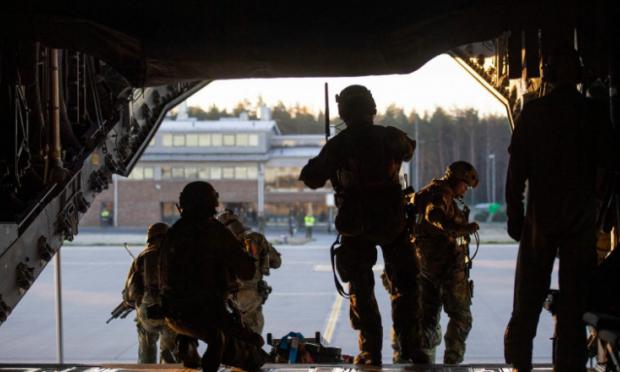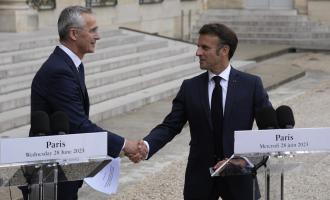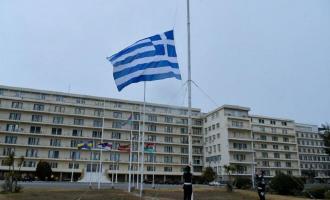Latvia is not opposed to the deployment of Western troops in Ukraine, a Latvian official said on Wednesday, after French President Emmanuel Macron first suggested and left open such a possibility but was later rebuffed by countries that support Ukraine in its war with Ukraine. Russia.
"Latvia continues to consider various ways of strengthening support to Ukraine. If the NATO allies reach an agreement on the deployment of troops in Ukraine, Latvia will consider and wants to participate," a representative of the Latvian Defense Ministry told DPA, according to Agerpres.
At the end of an international conference in support of Ukraine, attended by some 20 heads of state and government in Paris on Monday, President Macron did not rule out the possibility of some European states sending troops to Ukraine, explaining in time that Russian troops are advancing in eastern Ukraine, "in dynamics nothing can be ruled out" and "everything possible must be done to prevent Russia from winning this war".
The first to speak of this possibility, but to disapprove of it, was Slovak Prime Minister Robert Fico. He said, ahead of the meeting hosted by France, that according to its preparatory document, several EU and NATO member states are considering sending troops to Ukraine through bilateral agreements.
Meanwhile, the main countries providing military support to Ukraine in the war with Russia, including the US, Great Britain, Germany, Poland, the Czech Republic, but also other EU and NATO states that reacted after Macron's statement, backed away from his proposal and assured that they do not intend to send combat troops to the Ukrainian front.
NATO officials also said the alliance has no plans to send troops to Ukraine to fight in the war with Russia. "NATO and its allies are providing unprecedented military assistance to Ukraine. We have been doing this since 2014 and it has multiplied after the Russian invasion on a large scale. But there are no plans to send NATO troops on the ground in Ukraine," these officials said in statements.
Together with the other two former Soviet republics of the Baltic countries (Lithuania and Estonia), Latvia provides Ukraine with the most substantial aid in the war with Russia in relation to its own GDP, respectively 1.4% of Lithuania's GDP, 1.1% of Latvia's and 1.3% of Estonia's. The three Baltic states also asked Brussels for the most radical sanctions against Russia, such as Latvia's proposal for a complete ban on grain imports from Russia into the EU.
Μακρόν: Δεν μπορούμε να αποκλείσουμε την αποστολή δυτικών στρατευμάτων στην Ουκρανία
French President Emmanuel Macron said sending Western troops to fight in Ukraine "cannot be ruled out" and that Paris would drop its long-standing opposition to buying emergency artillery supplies for Ukraine from outside the EU.
Arguing that Russia's defeat was necessary to ensure Europe's "collective security", Macron said a meeting of 25 European leaders in Paris on Monday (26/2) had renewed the West's resolve to help Ukraine, after more than two years of full-scale war in the country.
"We will do whatever it takes to prevent Russia from winning the war," he told reporters. Asked whether sending Western troops to Ukraine was an option, Macron said the issue had been discussed at the conference. "There is no consensus today on sending official troops on the ground. But in terms of options, nothing can be ruled out," he added, without giving details of which countries were considering such a step.
Macron said the leaders agreed to create a "coalition" of countries that would discuss providing Ukraine with long-range missiles and bombs. France and the UK donated several Storm Shadow and Scalp cruise missiles last year and similar coalitions have already been formed for artillery, air defence and sea warfare.





